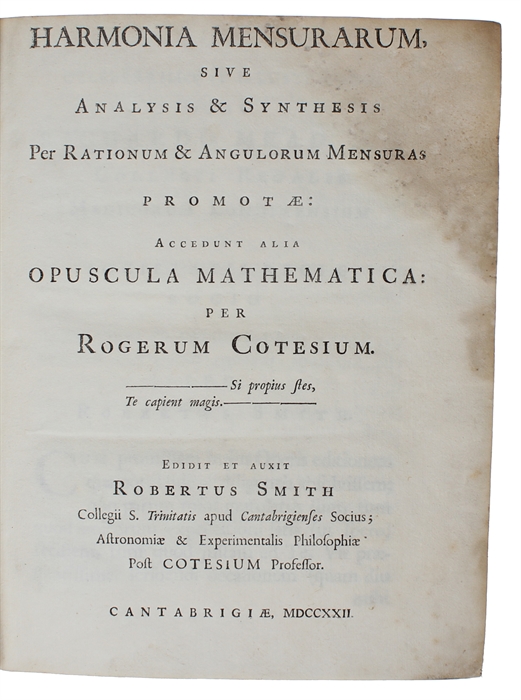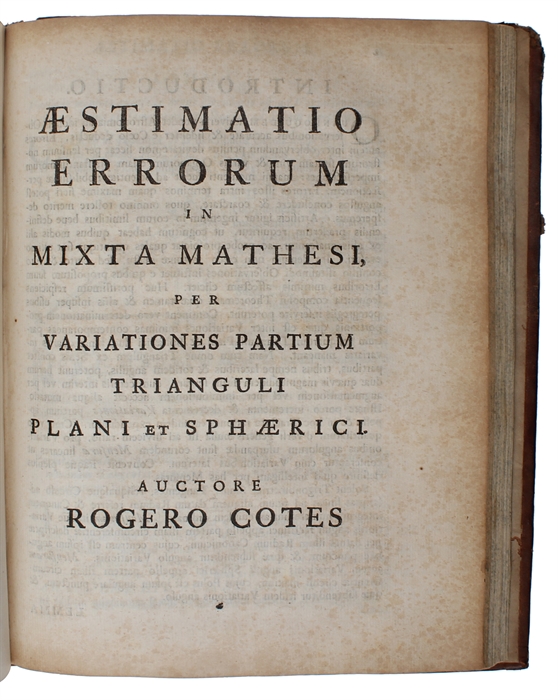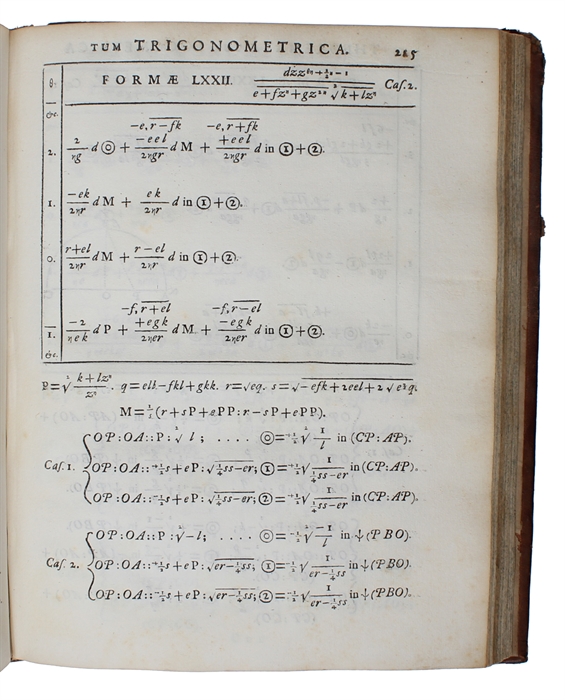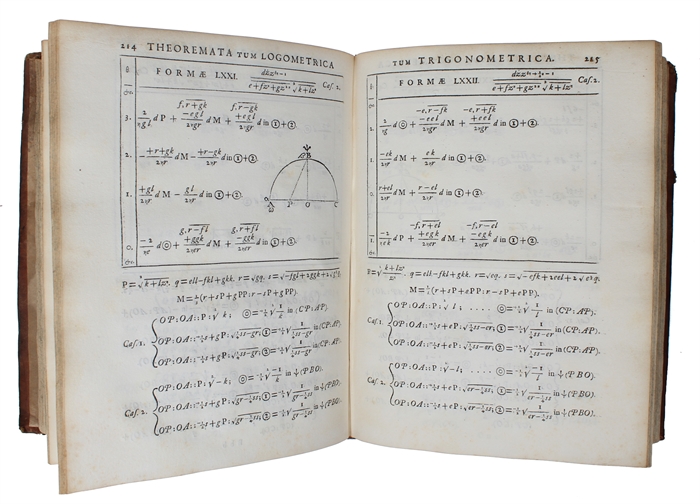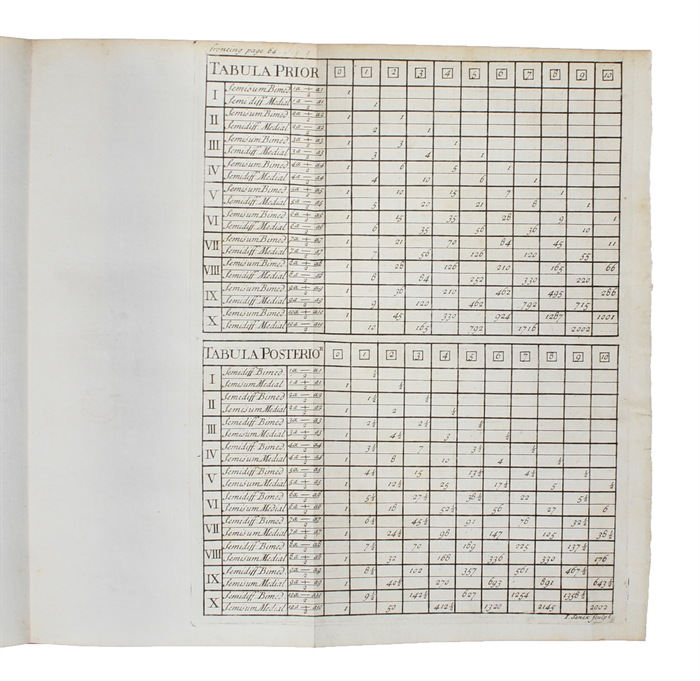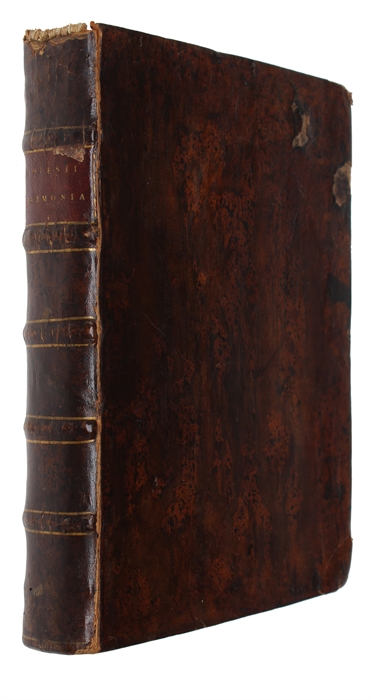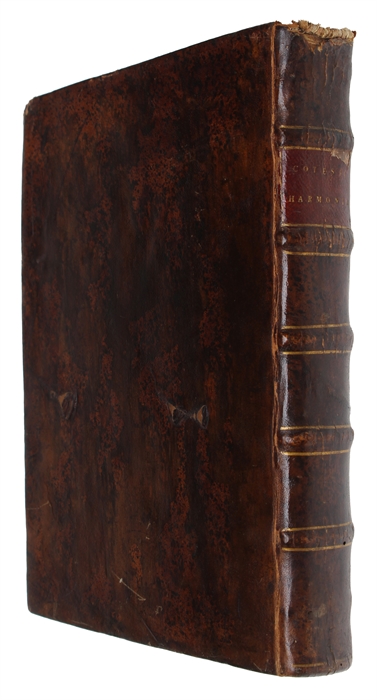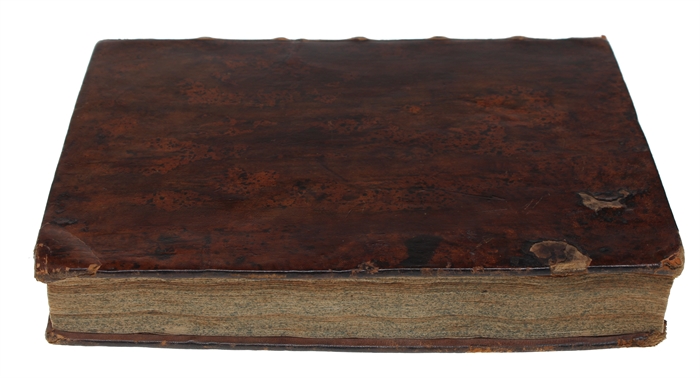"EARLIEST ATTEMPT TO FRAME A THEORY OF ERRORS"
COTES, ROGER.
Harmonia Mensurarum, sive Analysis & Sythensis per rationum & angulorum mensuras promotae: accedunt alia Opuscula Mathematica.
Cambridge, 1722.
4to. In contemporary full calf with five raised bands with red leather title-label with gilt lettering to spine. Boards with a few scratches, missing small parts of the leather. corners bumped. Upper endbands showing. Upper outer corner with dampstain, primarily affecting first leaves, otherwise a good copy. Printed on good paper. (20), 249, (3), 125, (1) pp. + 1 folded plate.
First edition of Cotes’ important posthumously published work. Roger Cotes (1682-1716) published only one scientific paper in his lifetime, and the present work thus constitutes the earliest and main record of his mathematical achievements. According to Augustus de Morgan, this is 'the earliest work in which decisiveness progress was made in the application of logarithms and of the properties of the circle of the calculus of fluents'; it includes the first version of the Newton-Cotes formulas, the first introduction of Euler's formula, and the 'Cotes' theorum' of trigonometry. Furthermore, it contains the “Earliest attempt to frame a theory of errors.” (Jungnickel, Cavendish: The Experimental Life, p. 150). He became the first Plumian Professor at Cambridge University from 1707 until his death. When Cotes died Cambridge in 1716 at the early age of 33 Isaac Newton famously remarked, "If he had lived we would have known something." Tomash & Williams C184
Roger Cotes (1682–1716), much respected in his own right, is also known for working closely with Isaac Newton by proofreading the second edition of his famous book, the Principia, before publication.
Norman 519
Wallis 246
Babson (Supplement) 29
Order-nr.: 60246

